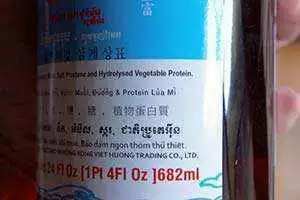Celiac.com 01/31/2012 - Barley is used to make most traditionally brewed commercial beer, but whether the finished product contains significant amounts of gluten has remained unresolved.
A number of breweries have been labeling certain of their barley-brewed beers as 'low gluten." The breweries have contended that the brewing process eliminates or reduces the gluten content in beer to levels that make it acceptable for people with sensitivity to gluten.
Celiac.com Sponsor (A12):
 Perhaps unsurprisingly, a recent study of sixty commercial beers has debunked the idea that the beer brewing process eliminates gluten or reduces it to levels insignificant for people with celiac disease or gluten-intolerance.
Perhaps unsurprisingly, a recent study of sixty commercial beers has debunked the idea that the beer brewing process eliminates gluten or reduces it to levels insignificant for people with celiac disease or gluten-intolerance.
Beers tested in a new study, including some brands labeled "low-gluten," contain hordein, the form of gluten found in barley, at levels that could trigger symptoms in patients with celiac disease, according to researchers.
You can find the full study to address this controversy over the gluten content of beer in ACS' Journal of Proteome Research.
In their article, Michelle Colgrave and colleagues explain that celiac disease affects over than 2 million people worldwide.
They explain that their study faced an initial challenge because detecting gluten in malted products using existing tests was difficult, as the tests were largely inaccurate. So the scientists developed a highly accurate new test for hordein, the gluten component in barley-based beers.
As many expected, their analysis of 60 commercial beers found that eight labeled "gluten-free" did not contain gluten. All eight of the commercial beers labeled 'gluten-free' were, in fact, gluten-free.
But most regular, commercial beers had significant levels of gluten. Most alarming was that discovery that the two beers labeled as "low-gluten" each contained about as much gluten as a regular beer.
With the market for gluten-free products continuing to expand rapidly, it is no surprise that products may slip onto the market which are targeted at people with celiac disease or gluten-intolerance, but which actually contain levels of gluten that are unacceptable and potentially harmful to people who are sensitive to the proteins.
The problem is partly compounded by a lack of consistent standards for what constitutes "gluten-free," or what levels best address the needs of people with celiac disease and gluten-intolerance.
That leaves the burden for making decisions about what products are safe or not safe largely up to consumers, who must rely on a loose patchwork of manufacturers and product certification organizations that are, hopefully, knowledgeable, scientific and reliable. When science is hazy, room exists for spurious.
The lesson here is that commercial gluten-free beers seem to be genuinely gluten-free, and safe for people with celiac disease and gluten-intolerance, while anything labeled 'low gluten' is potentially bad news.
Source:
- Open Original Shared Link










Recommended Comments